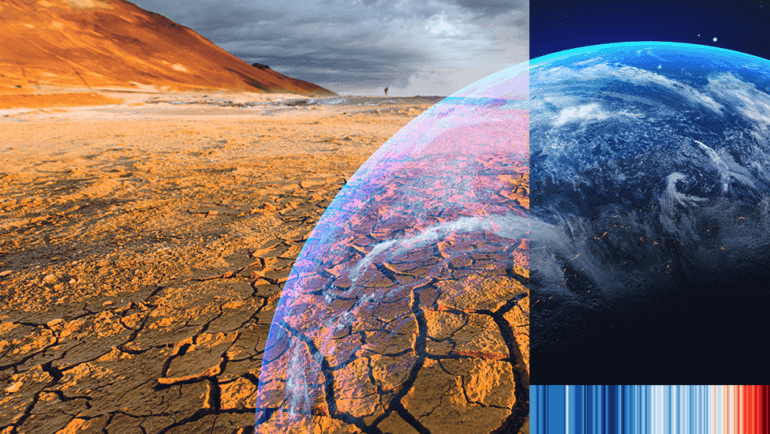TL;DR:
- Swiss startup Jua raises $16 million to develop an expansive AI model for real-world applications.
- Jua’s initial focus is on weather and climate pattern modeling, particularly in the energy sector.
- The funding round is led by 468 Capital and the Green Generation Fund, with participation from other notable investors.
- Jua claims superiority over existing AI models by ingesting a 20x larger volume of data.
- The company aims to create the first foundational model for the natural world, advancing towards artificial general intelligence.
- Founders bring industry-specific expertise to the project, combining technical knowledge with practical experience.
- Jua’s approach includes incorporating diverse data sources and aims for a 10,000-fold reduction in operational costs compared to legacy systems.
Main AI News:
In the ever-evolving landscape of artificial intelligence, large AI models are emerging as the driving force behind generative AI services. Much like operating systems have been instrumental in the growth of smartphones, these AI models are becoming the foundational platforms of the AI space. Switzerland-based startup Jua has entered this arena with grand ambitions, having recently secured $16 million in funding to develop a groundbreaking “physics” model for the natural world.
While still in its early stages, Jua’s first application will focus on modeling and predicting weather and climate patterns, with an initial emphasis on their impact on the energy industry. This launch is expected to take place in the coming weeks, with plans to expand into industries such as agriculture, insurance, transportation, and government.
The seed funding round, co-led by 468 Capital and the Green Generation Fund, includes participation from Promus Ventures, Kadmos Capital, Flix Mobility founders, Session.vc, Virtus Resources Partners, Notion.vc, and InnoSuisse.
Andreas Brenner, Jua’s CEO, co-founded the company alongside CTO Marvin Gabler. Brenner points to the growing volatility of climate change and geopolitics as driving factors for organizations operating in the physical world. The need for more accurate modeling and forecasting has become critical, especially after 2023 marked a high watermark year for climate disasters, resulting in significant financial losses.
Jua distinguishes itself from existing AI models by ingesting a significantly larger volume of information, boasting a model 20 times the size of competitors like GraphCast. While weather prediction is the starting point, Jua envisions a broader application, aiming to create the first foundational model for the natural world. Understanding the physical world is a pivotal step towards achieving artificial general intelligence, going beyond language comprehension.
Jua’s founders bring a wealth of expertise to the table. Gabler previously led research at Q.met, a prominent player in weather forecasting, and worked on deep learning technology for the German government. Brenner has a background in the energy sector and founded a fleet management software startup, offering a unique blend of technical and industry-specific knowledge.
Jua is actively involving investors and potential customers in the development process, seeking input on data and refining its product. The company’s approach includes incorporating a wider range of data sources, including satellite imagery, topography, and other recent data, into its predictive models. This holistic approach consolidates data from various stages of the value chain into a single unified system, a key differentiator.
Efficiency is another primary goal for Jua, aiming to reduce operational costs for itself and its customers significantly. According to Brenner, their system uses 10,000 times less compute power compared to legacy systems.
Jua’s emergence and funding come at a crucial juncture, as foundational models become the bedrock for the next wave of AI applications. The likes of OpenAI, Google, Microsoft, Anthropic, Amazon, and Meta dominate this space, prompting initiatives in other parts of the world, such as Europe, to nurture homegrown alternatives.
Jua’s mission extends beyond profits, as it aligns with addressing the challenges posed by climate change. The startup seeks to enhance disaster planning and potentially mitigate environmental damage. Moreover, its AI model holds promise in material science, biomedicine, chemistry, and more.
While the potential is vast, Jua is acutely aware of the questions surrounding safety and reliability that often accompany AI models. Ensuring that the model learns physics from the ground up to solve problems correctly remains a top priority.
Jua’s journey is not only a testament to the power of AI but also a reflection of its commitment to improving our understanding of the world and addressing critical global challenges.
Conclusion:
Jua’s successful funding and groundbreaking approach signify a growing interest in foundational AI models for real-world applications. Their ability to handle a vast amount of data efficiently has the potential to revolutionize industries like energy, agriculture, and insurance. As the AI market evolves, companies like Jua are poised to drive significant advancements in AI’s practical utility and impact on various sectors.

